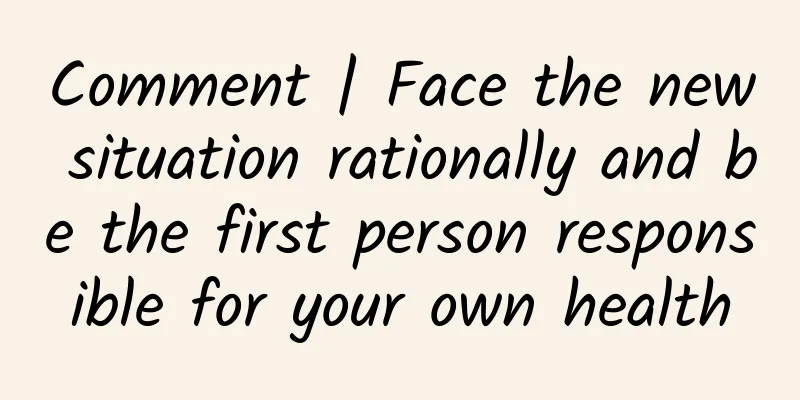What to do if you have a cold or cough during pregnancy

|
In fact, many of the medicines we take in our daily lives will have adverse effects on the body, but as the body metabolizes, these bad substances will be excreted from the body. However, for pregnant mothers, if they take these drugs, it is likely to have adverse effects on fetal development. Especially in early pregnancy. So, what should you do if you catch a cold or cough during pregnancy? If a pregnant woman catches a cold, it is important to figure out what causes the cold and at what stage of pregnancy the cold occurs. Different causes and onset periods of colds have different effects on the fetus. Colds are divided into common colds and viral colds. If it is just a common cold, the main symptoms are sneezing, nasal congestion, and no fever. The symptoms are mild and there is no need to take cold medicine. It can usually heal on its own within a week. In this case, a pregnant woman's cold will not have any effect on the fetus. If the cold symptoms are severe, especially if the high fever persists and if the cold is caused by influenza virus infection, the cold may have a certain impact on the fetus. These influences come from: Colds caused by influenza viruses may cause influenza viruses to infect the fetus; The medicines you take when you have a severe cold may have an impact on the fetus; The probability of severe symptoms of influenza during pregnancy is 3.1 times higher in the first trimester, 6.6 times higher in the second trimester, and 7.9 times higher in the third trimester. At the same time, the fetal mortality rate during influenza during pregnancy increases by 1.9 times, and the malformation rate increases by 2.2 times. Fever will also have a certain impact on the fetus. Generally speaking, a cold in early pregnancy has a relatively greater impact on the fetus. Because this period is a critical period for the development of various organs of the fetus, influenza virus or cold medicines may cause malformations to the fetus at this period, such as congenital heart disease, cleft lip, hydrocephalus, anencephaly and microcephaly. In severe cases, termination of pregnancy may be recommended. The impact of a cold in the second and third trimesters on the fetus is relatively small, because the fetus's various organs are basically formed during this period and rarely cause adverse effects. However, if a severe cold occurs during this period, prolonged high fever will hinder the development of the fetus in the uterus. If it is in the late pregnancy, extreme coughing may also cause early rupture of membranes or even premature birth. |
<<: Does baking soda douching affect ovulation?
>>: Can pregnant women take medicine for cold and cough?
Recommend
New research: Are the sugar-free drinks we drink every day actually "attacking" our blood vessels?
In today's society where health awareness is ...
How long does a girl's teenage rebellion last?
I believe that many parents have certain worries ...
What is the treatment for fungal urethritis?
Fungal urethritis is a common manifestation of ur...
What are the advantages of integrated stoves? What are the disadvantages of integrated stoves?
Integrated stoves save the space for traditional ...
Why does a woman smell sour down there?
Every woman should prevent the occurrence of gyne...
What effect does moxibustion have on rheumatism? Can moxibustion treat rheumatoid arthritis?
Moxibustion is good for treating rheumatism. From...
Can I drink coffee while trying to conceive?
The period of preparing for pregnancy is called t...
How to make breasts bigger?
Everyone wants to have a sexy body, but some peop...
Can catching up on sleep after staying up late really make up for the lost sleep?
Nowadays, staying up late seems to have become a ...
What to eat to promote menstrual bleeding
Women's bodies are prone to discomfort during...
I feel weak during menstruation.
If the human body feels weak, the most common rea...
The reason why my girlfriend's period was delayed by 10 days
We all know that women's menstruation has a c...
What does a single line on an early pregnancy mean?
Although people's living standards are gradua...
Can pregnant women eat it?
Pregnant women cannot take intestinal regulating ...









